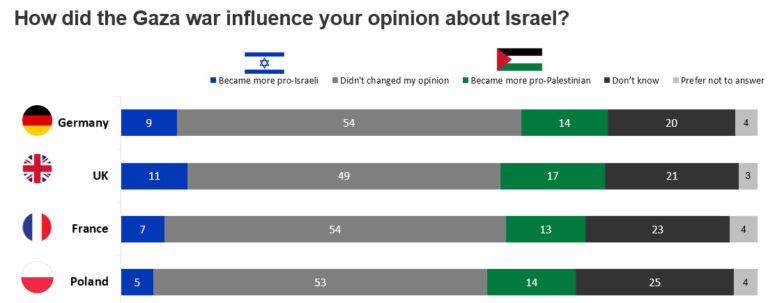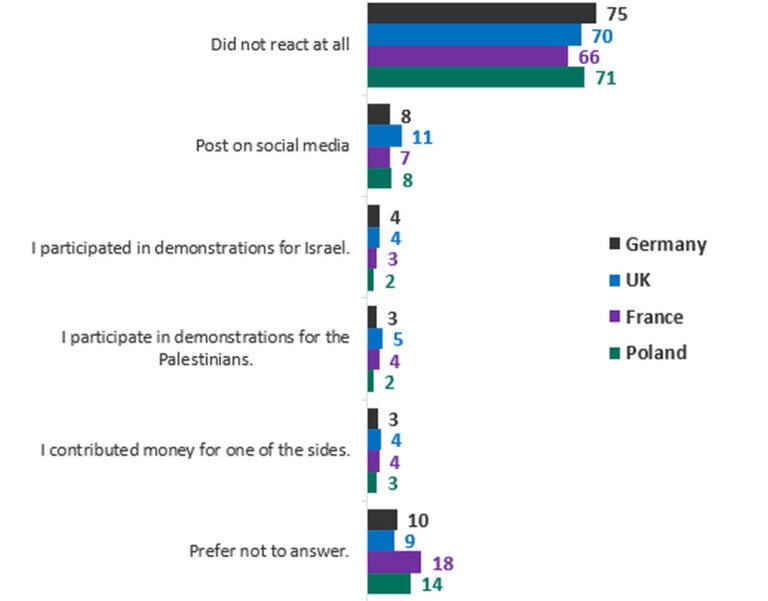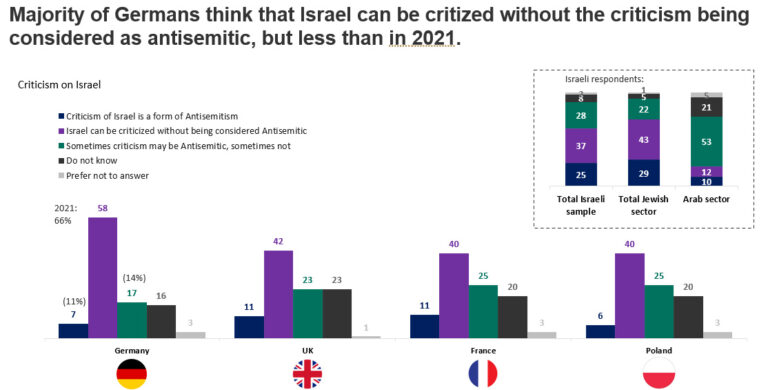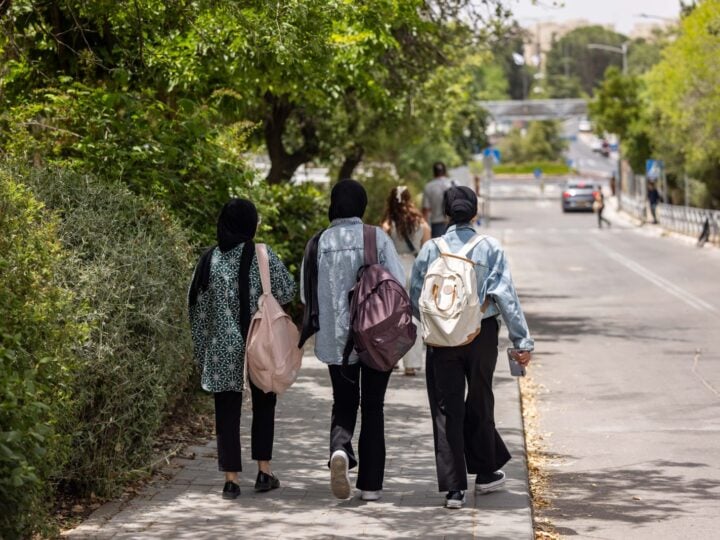About two in four Europeans say that the Gaza war hasn’t influenced their opinion about Israel, according to a new survey from the Hebrew University of Jerusalem.
The 2024 HU-EF Barometer sheds light on European public opinion amid the ongoing Gaza conflict. Conducted online in Israel, Germany, Great Britain, France and Poland, the survey engaged 1,000 adult men and women from each country between February and March 2024.
One of the significant findings was that approximately half the respondents across all surveyed European nations maintained their opinions regarding Israel amid the Gaza war. A small minority experienced shifts toward either side, with a slightly higher margin favoring a pro-Palestinian perspective.

Media coverage played a pivotal role in shaping public understanding of the conflict, with German respondents showing a higher level of engagement compared to their British, French and Polish counterparts.
Despite the extensive media coverage, the survey found that a low percentage of individuals actively posted about the conflict on social media or participated in demonstrations.
Financial support and participation in demonstrations for either side of the conflict was also limited among the respondents.

Regarding mediation, the survey revealed that 38 percent of British respondents expressed a desire for their country to play a role as a mediator, surpassing the interest shown by the French and Germans. However, respondents in Germany displayed reluctance compared to previous years, with 43% opposing Germany’s potential role as a mediator.
Regarding criticism of Israel, the survey found varying opinions.
In Germany, 58% believed Israel could be criticized without it being labeled as antisemitism, marking a decline from 66% in 2021. In the UK, France and Poland, approximately 40-42% agreed with this perspective.

“Criticism of Israel is valid when focused on policies or actions, but it becomes antisemitic when it employs stereotypes or double standards against Jewish people,” the report states. “It’s crucial to differentiate between legitimate critique and antisemitic rhetoric to foster constructive dialogue.”
















